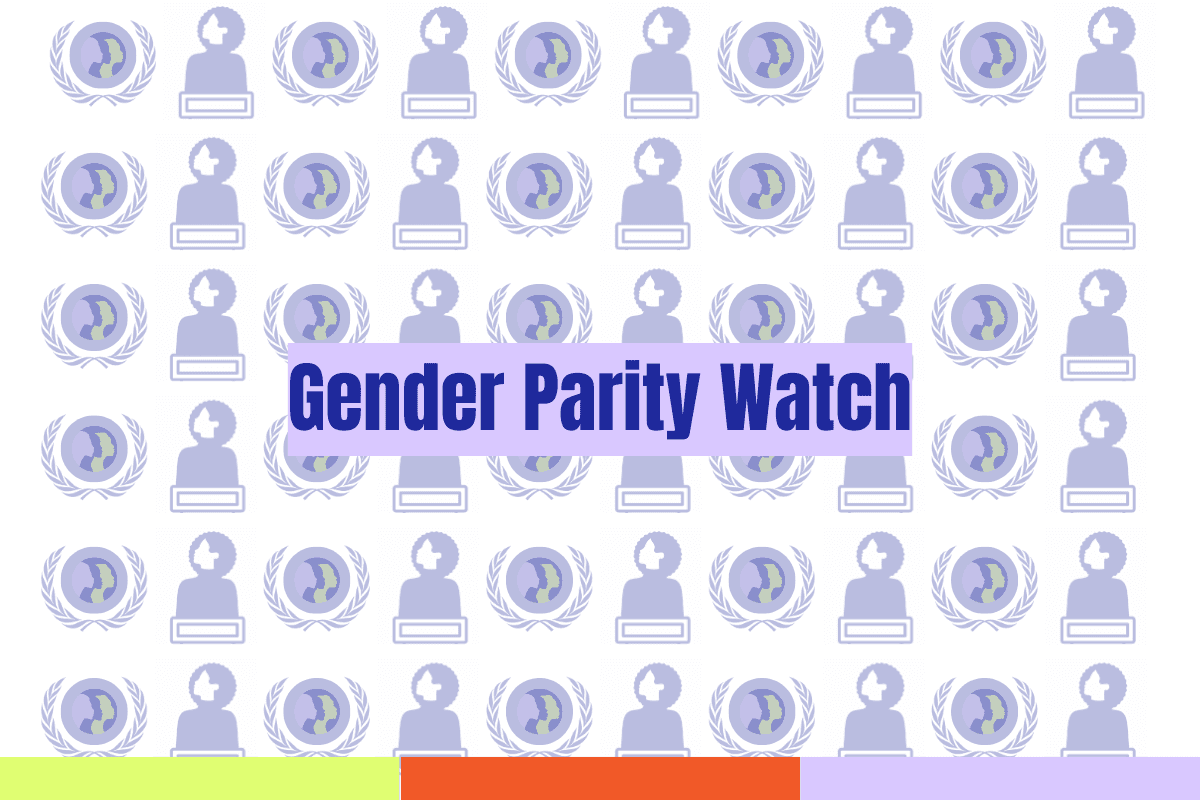Gender Parity Watch by GWL Voices: Tracking Multilateral Elections and Appointments

Share
How elections across the multilateral system reveal the state of gender equality in global leadership.
As the world navigates an era of compounding global crises—from conflict and climate to economic instability and democratic backsliding—the demand for inclusive, accountable leadership has never been more urgent. Yet, in 2025, women remain dramatically underrepresented in the top ranks of multilateral organizations.
At GWL Voices, we believe that measuring progress toward gender parity in international leadership is essential to transforming the global governance system. That’s why, following the publication of our Women in Multilateralism 2025 report, we are closely monitoring this year’s most consequential elections and appointments across the multilateral space.
2025: A Pivotal Year
This year presents a series of critical leadership transitions that will serve as litmus tests for whether the global system is truly evolving toward gender equality—or just paying lip service to it.
Among the elections and appointments we’re tracking:
- Assistant Secretary General of the Organization of American States (OAS): For the first time in decades, two women—Ms. Laura Gil (Colombia) and Ms. Ana María Sánchez (Peru)—are competing for the second-highest post in the OAS. While we regret that the top job once again went to a man, this moment shows what’s possible when qualified women are put forward and backed politically. This will allow it to have a “parity leadership team”.
- Read GWL Voices President, Susana Malcorra's OpEd on the past OAS Election.
- Read GWL Voices article on Laura Gil's appointment: A new hope at Women's Leadership at the OAS.
- President of the African Development Bank (AfDB): One of the most consequential development leadership positions on the continent, the AfDB presidency will be decided on 29 May 2025. Ms. Tshabalala Bajabulile Swazi (South Africa) is the only woman in the race, and her candidacy carries particular weight. She served as Senior Vice President and acting President of the Bank, making her the most senior woman in the institution’s leadership before declaring her candidacy. Her election would be a landmark for gender equality in African finance and global development leadership.
- Read GWL Voices article on AfDB election: A Missed Opportunity for Gender Equality at the African Development Bank.
- Director General of the World Tourism Organization (UNWTO): For this election there are six candidates and among those two women: Ms. Gloria Guevara Manzo (Mexico), a well-known tourism leader and former Secretary of Tourism in her country; and Ms. Shaikha Al Nowais (United Arab Emirates), who is also a well-known tourism leader and former Corporate Vice President of Rotana Hotel Management Corporation. Their candidacies are competitive and come at a critical time when sustainable and inclusive tourism is a global imperative.
- Director General of the United Nations Development Programme (UNDP): Member States have been invited to submit candidates to the Secretary-General.
- Read GWL Voices Insights on UNDP's appointment: The Next UNDP Administrator: Still a Men’s World?
- Director General of the (UNESCO): With only three candidates in the race, the leadership of this vital cultural and educational UN agency is once again at a crossroads. Two women—Ms. Audrey Azoulay and Ms. Irina Bokova—have previously held this position, setting an important precedent. This year, Ms. Gabriela Ramos, nominated by Mexico, is the only woman candidate. Her candidacy is particularly significant given her track record on gender equality and global policy innovation.
- President of the UN General Assembly (UNGA): The rotating presidency of the UN General Assembly—though typically a one-year role—is symbolically powerful, often reflecting regional consensus and political strategy. For the 80th Session, Germany has announced its intention to nominate outgoing Foreign Minister Annalena Baerbock. Her nomination would be historic—not only would she bring a sharp diplomatic profile and deep experience to the role, but she would also become one of the few women to preside over the General Assembly in its 80-year history. Her candidacy signals the growing recognition that leadership at the UN must reflect the diversity of its membership—not just in geography, but in gender.
Why It Matters
Representation is not just about optics—it’s about outcomes. Multilateral institutions cannot address the world’s most pressing challenges with half the world’s talent excluded. Gender-balanced leadership brings new perspectives, different priorities, and often, more collaborative approaches to governance.
Through our monitoring and advocacy, GWL Voices continues to call on governments, civil society, and the multilateral system itself to commit to gender-sensitive selection processes.
The road to equality is long—but not impossible. 2025 can still be a turning point.
Follow the Journey
We will be updating our Gender Parity Watch throughout the year. Follow us as we track key appointments, share data, spotlight milestones, and elevate the voices of women leading change in global institutions.
Because parity is not a promise—it’s a practice.
#WomenInMultilateralism #GenderParity #GlobalLeadership #Multilateralism #GWLVoices #MadamSecretaryGeneral